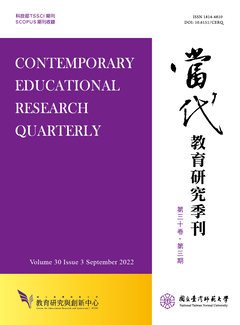

The purpose of this study was to explore the relationships between college students’ individual factors, their learning outcomes and their graduate destination. The author used the 2005 junior student cohort data of “Taiwan Integrated Postsecondary Education Database.” Variables of types of higher education institutions consist of public and private universities as well as colleges of technology. The individual variables include family background, self-concept, educational aspiration, and campus experience. Learning outcome variables are graduation grade point and competencies of employability. Results of the study show that comparing to their unemployed peers after graduation, those who continued to study in graduate schools or found a full-time job are more likely to have higher selfevaluation, frequent club participation, better faculty-student interactions, closer peer relation and deeper academic involvement. Variables related to the full-time employment status of college graduates include lower paternal occupation status, higher family income, no plan for gradate study, with working experience, good peer relation, good graduation grade point and career planning ability. But higher paternal education, better family income, positive self-concept and academic involvement, better graduation grade point and career planning ability, and early planning for further study are related to the full-time graduate study status. In addition, those who graduated from public or private universities and public colleges of technology are more likely to go to graduate schools or find a permanent job than those ones graduated from private colleges of technology. However graduates form private college of technology benefit from club participation for finding full-time jobs. Based on the research results, recommendations for planning effective programs to enhance students’ learning and employability are provided.

This work is licensed under a Creative Commons Attribution-NonCommercial 3.0 Taiwan License.
Center for Educational Research and Innovation, National Tawain Normal University
162, Ho-Ping East Rd, Sec. 1, Taipei, Taiwan | Tel:+886-2-7749-3670 | E-mail: cerecerq@gmail.com
CERI | NTNU | E-mail Alerts | Open Journal System
© 2014 CERI-NTNU
